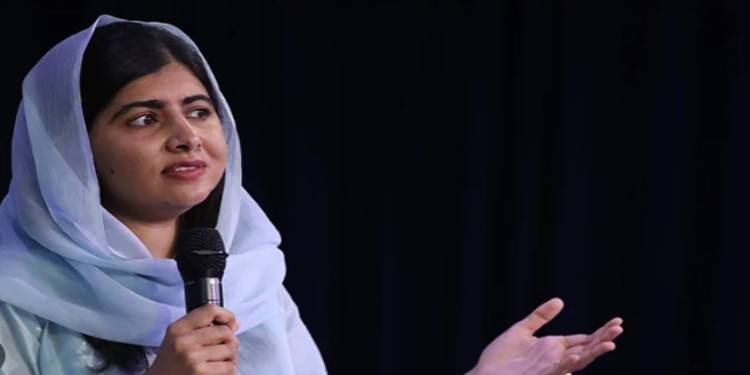
Malala Yousafzai, the youngest recipient of the Nobel Peace Prize from Pakistan, has pleaded with the Taliban administration to free Matiullah Wesa, an activist for education who was recently detained in Kabul, the capital of Afghanistan.
Malala was particularly concerned about Wesa's detention since he had been operating mobile libraries and classrooms in Afghanistan to educate both boys and girls.
The outspoken proponent of education, who herself escaped a Taliban murder attempt in 2012, protested Wesa's imprisonment and called it an attack on education. The continuous fight in Afghanistan for the right to an education, particularly for girls and young women in the face of Taliban rule, is highlighted by Malala's appeal for Wesa's release.
Malala criticized the Taliban's prohibition on girls' education and their detention of advocates for education like Wesa in a tweet on Tuesday. She pleaded with the Taliban to free him and everyone else who had been detained for helping to educate youngsters.
https://twitter.com/Malala/status/1640724089995231233?s=20
Wesa's brother said that the 30-year-old education activist has been the target of threats because of his work with PenPath to promote education for Afghan women. While the authorities have not released information about the incident, it is also said that his home was raided during his detention.
Wesa was one of Afghanistan's best-known education campaigners, fighting for girls' education rights since the Taliban forbade female education in 2021. He had posted a picture of PenPath volunteers pleading for their daughters' Islamic rights to education on the day of his detention.
Matiullah Wesa was one of the most prominent education activists in Afghanistan, campaigning for girls' right to study since the Taliban barred female education in 2021. On the day of his arrest, he tweeted a photo of women volunteers for PenPath asking for Islamic rights to education for their daughters.
After concluding his prayers in a mosque, Wesa was reportedly stopped by a group of men traveling in two automobiles. His brother claims that when he demanded their identification documents, they beat him and forcibly took him away.
Afghanistan continues to be a difficult environment for women and girls, with many still having to deal with prejudice, violence, and a lack of access to possibilities for modern education and employment.
Malala was particularly concerned about Wesa's detention since he had been operating mobile libraries and classrooms in Afghanistan to educate both boys and girls.
The outspoken proponent of education, who herself escaped a Taliban murder attempt in 2012, protested Wesa's imprisonment and called it an attack on education. The continuous fight in Afghanistan for the right to an education, particularly for girls and young women in the face of Taliban rule, is highlighted by Malala's appeal for Wesa's release.
Malala criticized the Taliban's prohibition on girls' education and their detention of advocates for education like Wesa in a tweet on Tuesday. She pleaded with the Taliban to free him and everyone else who had been detained for helping to educate youngsters.
https://twitter.com/Malala/status/1640724089995231233?s=20
Wesa's brother said that the 30-year-old education activist has been the target of threats because of his work with PenPath to promote education for Afghan women. While the authorities have not released information about the incident, it is also said that his home was raided during his detention.
Wesa was one of Afghanistan's best-known education campaigners, fighting for girls' education rights since the Taliban forbade female education in 2021. He had posted a picture of PenPath volunteers pleading for their daughters' Islamic rights to education on the day of his detention.
Matiullah Wesa was one of the most prominent education activists in Afghanistan, campaigning for girls' right to study since the Taliban barred female education in 2021. On the day of his arrest, he tweeted a photo of women volunteers for PenPath asking for Islamic rights to education for their daughters.
After concluding his prayers in a mosque, Wesa was reportedly stopped by a group of men traveling in two automobiles. His brother claims that when he demanded their identification documents, they beat him and forcibly took him away.
Afghanistan continues to be a difficult environment for women and girls, with many still having to deal with prejudice, violence, and a lack of access to possibilities for modern education and employment.

